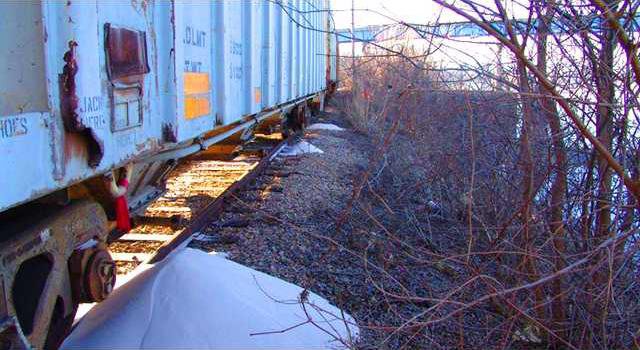With the proposed frac sand mine in Bridgeport Township approved for both conditional use and reclamation permits by the town board and zoning commission, only two other permits are needed—Wisconsin Department of Natural Resources air and stormwater permits—for operation to begin on lands leased by Pattison Sand Company, according to Pattison spokesperson Beth Regan.
“Pattison Sand Company has a couple more permits to obtain prior to beginning operations,” Regan said. “Once those are obtained, we can begin the on-site preparation process. Because much of the proposed mining area is beyond the Riverway Boundary, we can begin operations without the Riverway permits.”
Pattison was asked by the Lower Wisconsin State Riverway Board to voluntarily withdraw their permit application with riverway board on March 14, which Pattison swiftly declined to do.
Meanwhile, three citizen groups have joined resources and are seeking legal counsel, hoping to continue the fight against the frac sand mine which began at an overflow meeting of the Bridgeport Plan Commission held Nov. 14, 2013 to discuss the Pattison Sand application for a conditional use permit.
Bridgeport Concerned Citizens (BCC), Crawford Stewardship Project (CSP) and Friends of the Lower Wisconsin (FLOW) have sought legal counsel regarding the permits issued to Pattison Sand Company in Bridgeport Township. The groups cite a lack of regulation in the permitting and non-responsiveness by the town board and zoning commission during the permitting process as cause for seeking legal review.
“Bridgeport Concerned Citizens presented the township with 164 signatures from residents and 245 total in opposition to this frac sand mine,” Sheila Linder said. “Any other township would have responded with respect and serious review. Why did the officials choose to side with three landowners and Pattison Sand of Iowa over the majority of their citizens, over our financial welfare and quality of life?”
The township’s zoning code states conditional uses must be “found not to be hazardous, harmful, offensive, or otherwise adverse to the environment or the value of the neighborhood or town.” The groups argue that the township zoning commission failed to meet these stipulations during the permitting process.
“The zoning ordinance of Bridgeport Township was begging for refusal of the sand mine or substantial regulation,” said Edie Ehlert, Crawford Stewardship Project Co-coordinator.
“Destruction of agricultural land and reduced residential property values are a major concern, and our officials ignored those serious considerations,” commented Loren Fishler, a lifelong farmer near the mine site.
The proposed mine, the first in Crawford County, will be sited on 305 acres, with 120 acres to be actively mined, on land leased for 60 years from recently unseated township supervisor Rodney Marfilius and his wife Sandra, and adjacent property owners Earl and Amber Pulda and Lee and Joan Pulda.
Pattison chose to make no response to the fact that the citizen groups are seeking legal advice from Glenn Reynolds of Reynolds and Associates of Madison, an attorney specializing in natural resource law.
“We have made numerous commitments concerning this development and we intend to keep them,” Regan said.
Outside of a lawsuit, the fact of the mine could be moot, at least until such time as the permits were to be renewed.
Even if the township were to revisit their ordinance, which they are entitled to do at any time, the current permits would be “grandfathered in” because the town cannot legally alter the terms of an agreement they have approved, according to Rick Stadelman, the Executive Director with the Wisconsin Towns Association.
“Typically, licensing, permit ordinances can be modified at any time a governmental body chooses to do so,” Stadelman said. “But, they cannot be imposed effective immediately on anyone under said permit or license.
“They (the modifications) can only be applied to an existing operation in the future, when that permit is up for renewal or review,” Stadelman explained.





